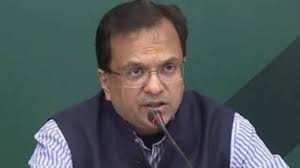In order to address the urgent problem of safety for medical professionals, Union Home Secretary Govind Mohan called a virtual meeting with chief secretaries and Director Generals of Police (DGPs) from every state on Wednesday. This discussion, which was convened in response to an August 22 Supreme Court decision, focused on how urgently hospitals—especially those with heavy patient traffic—need to strengthen their security procedures.
The main goal of Mohan’s order was to make sure hospitals had CCTV cameras installed in vulnerable areas. The purpose of this action is to close security gaps in healthcare facilities and boost surveillance. The intention is to make medical facilities safer for medical professionals, who have seen an increase in violent occurrences in the past few years.
Mohan also emphasized the necessity of integrating the 112 emergency helpline for healthcare professionals, guaranteeing them prompt access to aid in an emergency. In addition, he emphasized the significance of putting access control measures into place and educating people about new regulations intended to shield medical personnel from violence.
Co-chairing the conference, Union Health Secretary Apurva Chandra demanded a thorough security evaluation of facilities. To identify and fix any shortcomings in the infrastructure and security preparations, state representatives, district collectors, and police officers should work together on this audit. Chandra underlined the significance of routine security inspections for hired security guards and other support staff. In addition, he suggested that major hospitals and medical schools set up control rooms with duty rosters for employees in charge of keeping an eye on CCTV footage and safely preserving data. It was also advised to conduct regular security patrols on hospital property, particularly at night, to guarantee continued attention.
The forum also covered the short- and long-term steps state and union territory administrations have taken to improve hospital security. Several states have previously established police stations or chowkis (outposts) on the grounds of sizable district hospitals and medical colleges. Steps to improve safety were also reported, including increased police presence during the night and strengthened CCTV networks with more cameras installed to cover areas of low light.
The group emphasized how important it is to implement these security improvements before the National Task Force (NTF) releases its report on physician safety. The pressing necessity to safeguard healthcare workers and make sure they can carry out their responsibilities in a secure setting is reflected in the urgency of these actions. State and Union Territory officials are working together to address these issues and enhance the general security and safety of healthcare institutions across the nation.
SOURCE ;
TIMES OF INDIA








